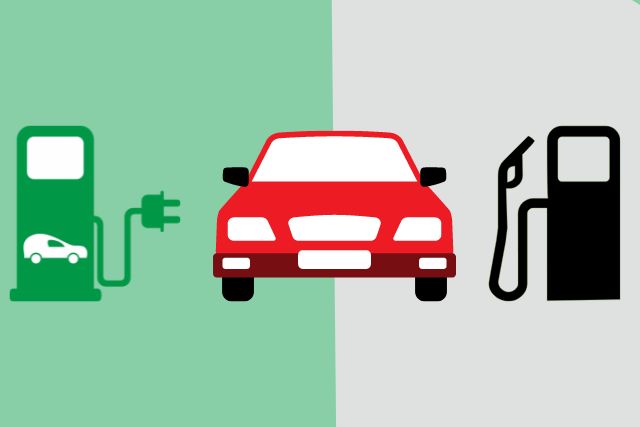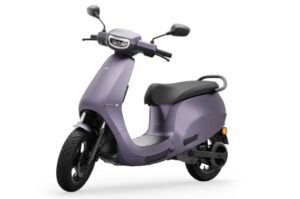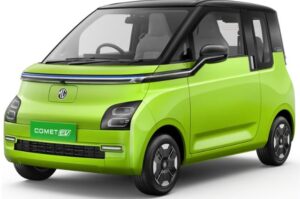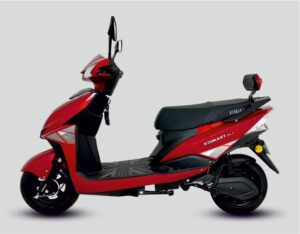
Are you tired of constantly filling up your gas tank and the high costs associated with it? Look no further than hybrid vehicles, the ultimate solution for fuel efficiency and eco-friendliness. The hybrid vehicle took the automotive world by storm and continues to gain popularity with each passing year. In this blog, we will delve into hybrid vehicles’ inner workings, benefits, and drawbacks.
What are Hybrid Vehicles?
Hybrid vehicles are a type of vehicle that combines an electric motor with an internal combustion engine. The electric motor is powered by a battery pack that can be charged through regenerative braking or by plugging it in. The internal combustion engine is used as a backup when the battery is depleted, or when additional power is required.
How Do Hybrid Vehicles Work?
Hybrid vehicles use a combination of an internal combustion engine and an electric motor to power the car. The electric motor is powered by batteries that are charged by regenerative braking and the gasoline engine. When the car is idle or traveling at low speeds, the electric motor powers the vehicle. At higher speeds, the gasoline engine takes over, providing additional power.
Advantages of Hybrid Vehicles
There are numerous advantages to using a hybrid vehicle, including:
Reduced Fuel Consumption: It uses less fuel than traditional gasoline-powered cars, which reduces greenhouse gas emissions and saves money on gas.
Lower Emissions: Hybrid vehicle produces lower emissions than traditional cars, which reduces air pollution and improves air quality.
Increased Fuel Efficiency: These are more fuel-efficient than traditional cars, meaning they can travel further on a single tank of gas.
Regenerative Braking: This uses regenerative braking to recharge the batteries, which capture and stores energy that would otherwise be lost.
Quieter Driving: Electric motors produce less noise than gasoline engines, resulting in a quieter and more peaceful driving experience.
Better Resale Value: Due to their fuel efficiency and eco-friendliness, hybrid vehicle have higher resale value than traditional gas-powered vehicle.
Types of Hybrid Vehicles
There are several types of hybrid vehicles, including:
Series Hybrid
In a series hybrid, the gasoline engine is only used to charge the batteries, and the electric motor powers the wheels. The engine doesn’t provide direct power to the car, making it a more efficient system.
Parallel Hybrid
In a parallel hybrid, both the gasoline engine and the electric motor can provide power to the wheels. The car can be powered by either the gasoline engine, the electric motor, or both.
Plug-in Hybrid
A plug-in hybrid is similar to a standard hybrid, but it has a larger battery that can be charged from an external source, such as an electrical outlet. This allows the car to travel further on electric power alone, reducing fuel consumption even further.
Drawbacks of Hybrid Vehicles
While hybrid vehicles have numerous benefits, they also have some drawbacks, including:
Higher Upfront Cost: Hybrid vehicles tend to be more expensive upfront than traditional gas-powered vehicles. However, the cost savings in fuel and tax incentives can offset this expense over time.
Limited Range: Some hybrid vehicles have a limited range in their electric-only mode, which can be inconvenient for long trips.
Battery Replacement Cost: This type of vehicle uses battery packs that can be expensive to replace when they reach the end of their lifespan.
Conclusion
Hybrid vehicles are becoming increasingly popular for those looking to save money on gas and reduce their carbon footprint. With their impressive fuel efficiency and eco-friendliness, hybrid vehicle are a smart choice for those looking to make a positive impact on the environment while also saving money in the long run. While there are some drawbacks, such as their higher upfront cost and limited range, the benefits far outweigh these drawbacks. As technology continues to advance, it will likely become even more efficient and cost-effective, making them an even more attractive option for drivers. So, if you’re in the market for a new vehicle, be sure to consider a hybrid vehicle as a smart and sustainable choice.
Frequently Asked Questions
Hybrid vehicles can be more expensive to maintain due to their complex technology. However, regular maintenance can help prevent costly repairs.
It depends on your driving habits and budget. If you have a long commute or frequently drive in stop-and-go traffic, a hybrid vehicle can result in significant cost savings over time.
Hybrid vehicles emit fewer greenhouse gasses than traditional gas-powered vehicles, making them a more eco-friendly option.







